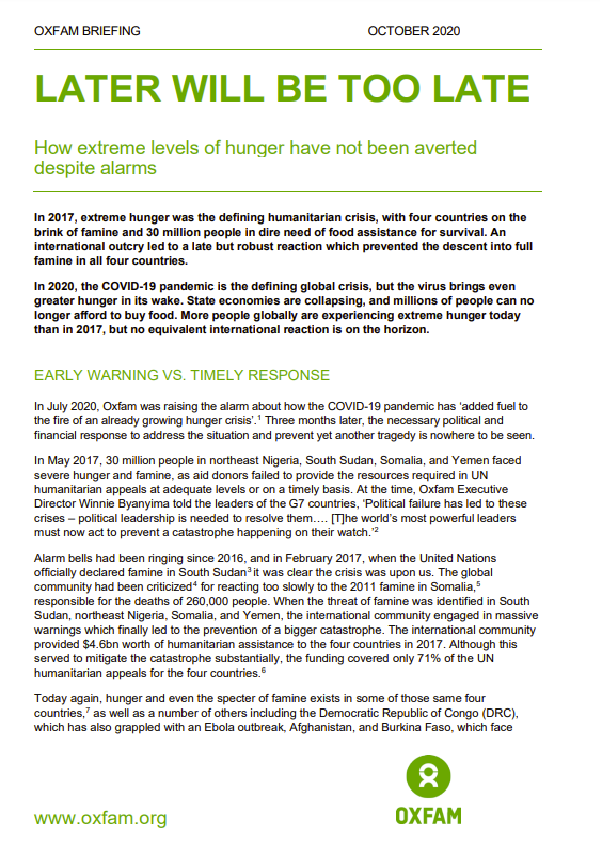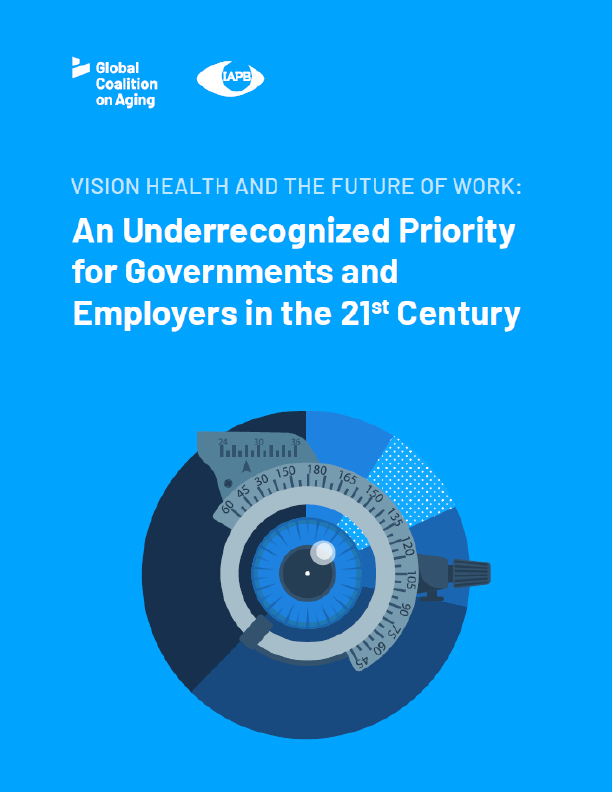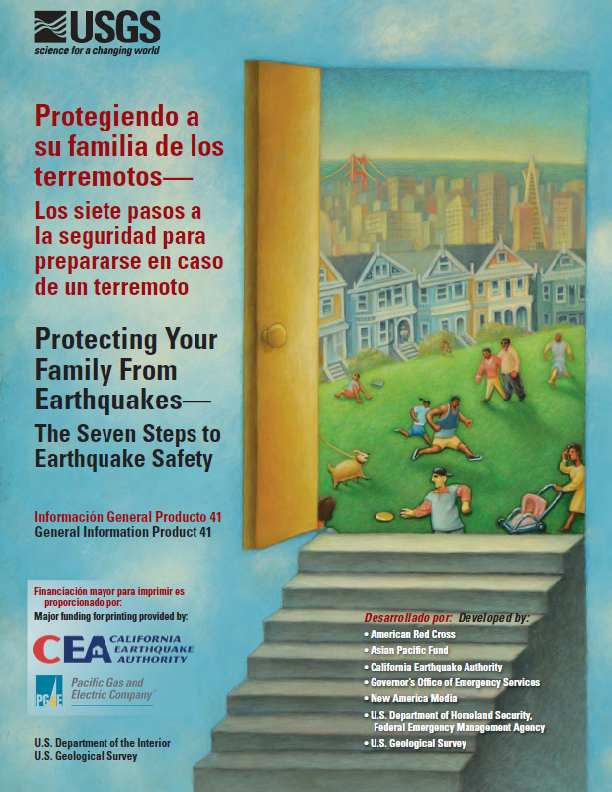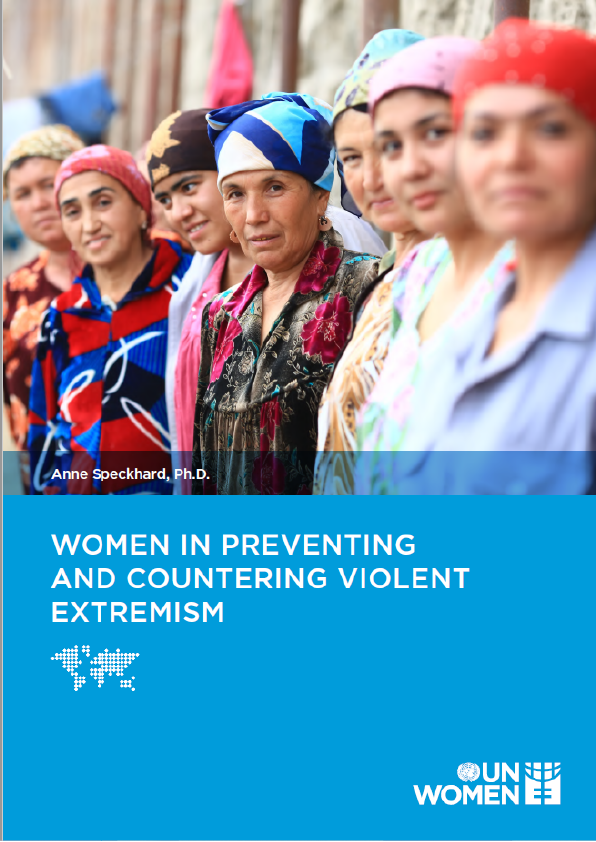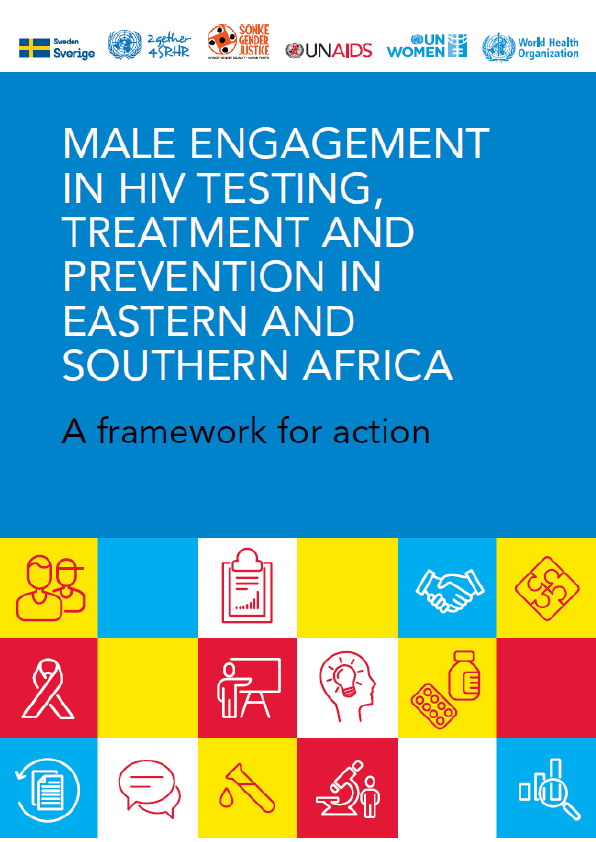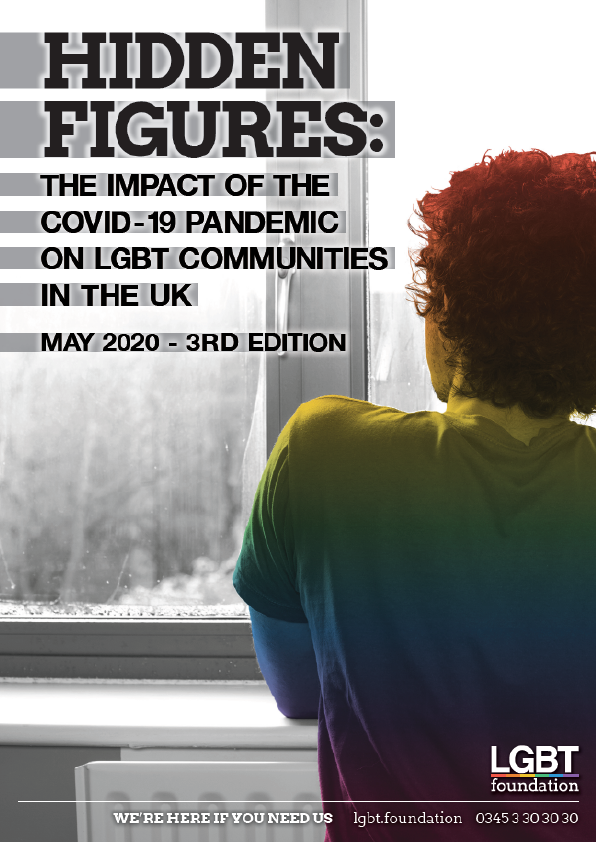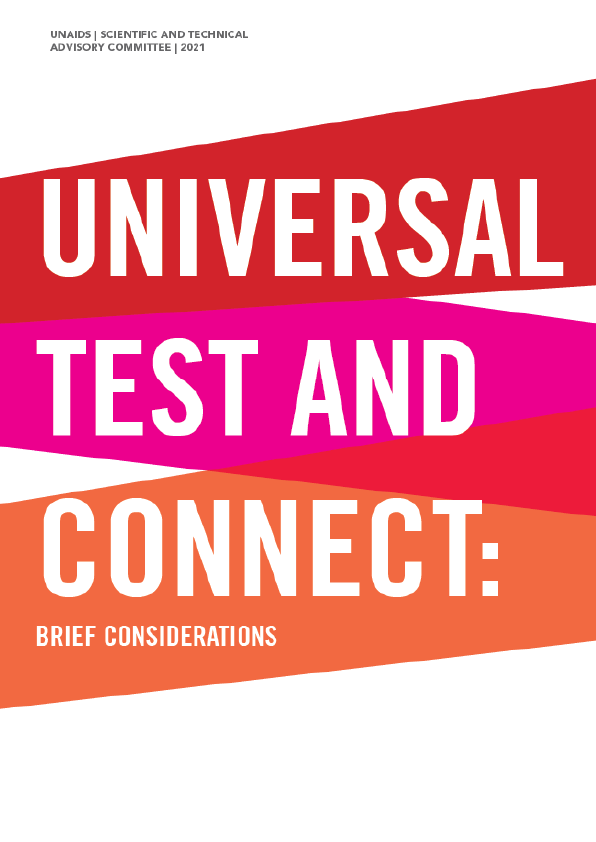In July 2020 Oxfam warned that by the end of this year more people could die from hunger-related to the COVID-19 pandemic than from the disease itself. But the response of the international community to global food insecurity has been dangerously inadequate.
The threat of ‘COVID famines’ and widespread extreme hunger is setting off alarm bells in the international community – but so far, sluggish funding is hampering the efforts of humanitarian agencies to deliver urgent assistance to people in need. More than 55 million people in the seven worst-affected countries are facing severe-to-extreme levels of food insecurity, some approaching famine-like conditions.
Oxfam is raising the alarm that famine is imminent and not enough is yet being done to stop this hunger crisis. It is also calling for urgent action to build a fairer and more sustainable food system. Years of neglect mean that millions of people remain unnecessarily vulnerable to shocks like COVID-19, climate change, and conflict.
In 2017, extreme hunger was the defining humanitarian crisis, with four countries on the brink of famine and 30 million people in dire need of food assistance for survival. An international outcry led to a late but robust reaction that prevented the descent into full famine in all four countries.
In 2020, the COVID-19 pandemic is the defining global crisis, but the virus brings even greater hunger in its wake. State economies are collapsing, and millions of people can no longer afford to buy food. More people globally are experiencing extreme hunger today than in 2017, but no equivalent international reaction is on the horizon.
EARLY WARNING VS. TIMELY RESPONSE
In July 2020, Oxfam was raising the alarm about how the COVID-19 pandemic has ‘added fuel to the fire of an already growing hunger crisis’. 1 Three months later, the necessary political and financial response to address the situation and prevent yet another tragedy is nowhere to be seen.
In May 2017, 30 million people in northeast Nigeria, South Sudan, Somalia, and Yemen faced severe hunger and famine, as aid donors failed to provide the resources required in UN humanitarian appeals at adequate levels or on a timely basis. At the time, Oxfam Executive Director Winnie Byanyima told the leaders of the G7 countries, ‘Political failure has led to these crises – political leadership is needed to resolve them…. [T]he world’s most powerful leaders must now act to prevent a catastrophe happening on their watch.’
Alarm bells had been ringing since 2016, and in February 2017, when the United Nations officially declared famine in South Sudan3 it was clear the crisis was upon us. The global community had been criticized4 for reacting too slowly to the 2011 famine in Somalia, 5 responsible for the deaths of 260,000 people. When the threat of famine was identified in South Sudan, northeast Nigeria, Somalia, and Yemen, the international community engaged in massive warnings which finally led to the prevention of a bigger catastrophe. The international community provided $4.6bn worth of humanitarian assistance to the four countries in 2017. Although this served to mitigate the catastrophe substantially, the funding covered only 71% of the UN humanitarian appeals for the four countries.
Today again, hunger and even the specter of famine exists in some of those same four countries,7 as well as a number of others including the Democratic Republic of Congo (DRC), which has also grappled with an Ebola outbreak, Afghanistan, and Burkina Faso, which face acute food insecurity emergencies. This crisis is a result of the coronavirus pandemic, violent conflicts, economic decline (frequently associated with the previous two factors), and disasters due to natural hazards. All of these drivers are making it difficult for affected people to access assistance or for humanitarian agencies to access the populations in need.
And yet today, despite alarm bells again ringing loudly, 9 the international response is not up to the challenge. UN Secretary-General (UNSG) Guterres has warned that DRC, Yemen, South Sudan and northeast Nigeria are facing the risk of famine, 10 but there is no adequate reaction. We cannot wait until it is too late; we cannot wait until children are crippled by hunger before we respond. To save lives we must act now.
In all, 55.5 million people in these countries are living in a food crisis or emergency, (i.e. IPC Phases 3-4; see appendix for details of these classifications), with localized famine conditions (known as catastrophe, or IPC 5) affecting 40,000 people in South Sudan and 11,300 in Burkina Faso11 (See Figure 1 and the methodological note below).
In Yemen, two million people in the south of the country are at IPC 3 (crisis) or higher. There are no current data available for the north. However, in June 2020 the UN Office for the Coordination of Humanitarian Affairs (OCHA) estimated the national food insecure population at 20.1 million.
